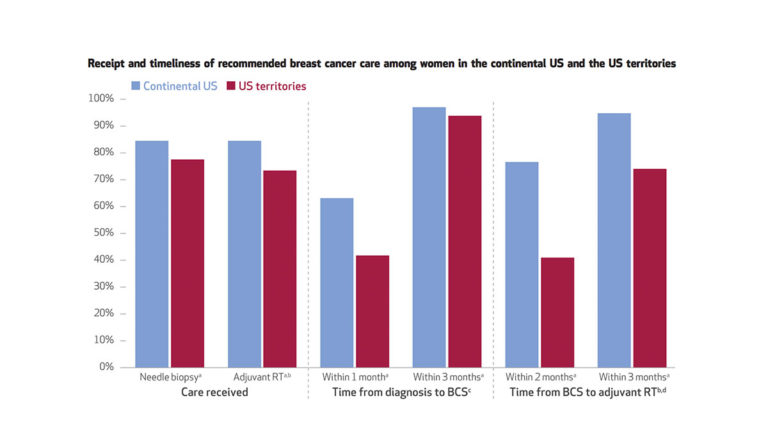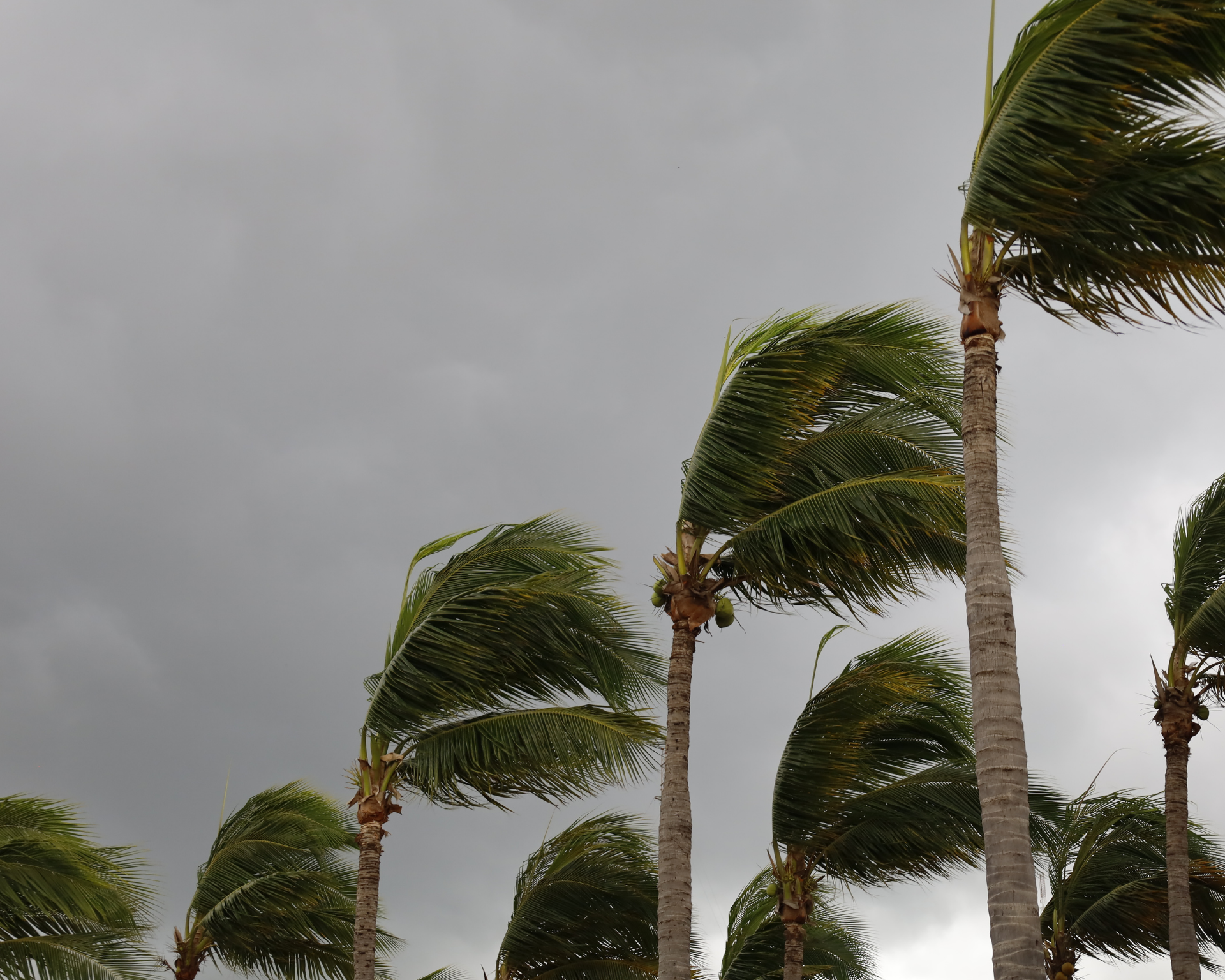US Territories and Breast Cancer Care
Women in US territories are less likely to receive timely diagnosis and recommended care for breast cancer than women living in continental United States.

Read Time: 2 minutes
Published:
Residents of US territories, which include the US Virgin Islands, Guam, American Samoa, Puerto Rico, and the Northern Mariana Islands, sometimes have limited access to health care because of lower federal insurance reimbursement and geographic barriers. Some territories are also entangled in financial crisis.
Puerto Rico’s struggle with debt came after 1996, when the island’s government experienced a recession, and borrowed funds for support. Years of unethical loaning by Wall Street made the situation far worse for Puerto Rico, and now, much of their health care is funded by borrowed money. In addition, other territories’ infrastructure sometimes cannot support wide access or efficient and effective medical care. Some areas in Guam, for example, struggle to provide readily available potable water and face frequent power outages. Some hospitals on the US Virgin Islands are old and crumbling and patients who cannot receive the treatment they need are transferred to Puerto Rico and the mainland.
Tracy M. Layne and colleagues assessed differences in the timeliness and quality of breast cancer care among female Medicare beneficiaries in the continental United States and its territories. The researchers looked at timeliness of care as an indicator of quality, based on evidence linking delays in treatment with stress, poor survival, and reemergence of cancer.
The bar chart above shows that women living in the territories were less likely to be diagnosed with breast cancer by the recommended method of needle biopsy than women in the continental United States. After diagnosis, women in the territories are also less likely to undergo breast-conserving surgery within one month of diagnosis and receive radiation therapy within two months after surgery. Regardless of how early the treatments are given, women in the territories are less likely to receive the recommended care for breast cancer than women living in continental United States.
This gap requires further research to identify the social drivers that restrict territory residents from receiving timely recommended breast cancer care, and to assess how discrepancies ultimately affect breast cancer outcomes among both territory and continental US populations.
Databyte via Tracy M. Layne, Jenerius A. Aminawung, Pamela R. Soulos, Marcella Nunez-Smith, Maxine A. Nunez, Beth A. Jones, Karen H. Wang, and Cary P. Gross, Quality Of Breast Cancer Care In The US Territories: Insights From Medicare. Health Affairs.



